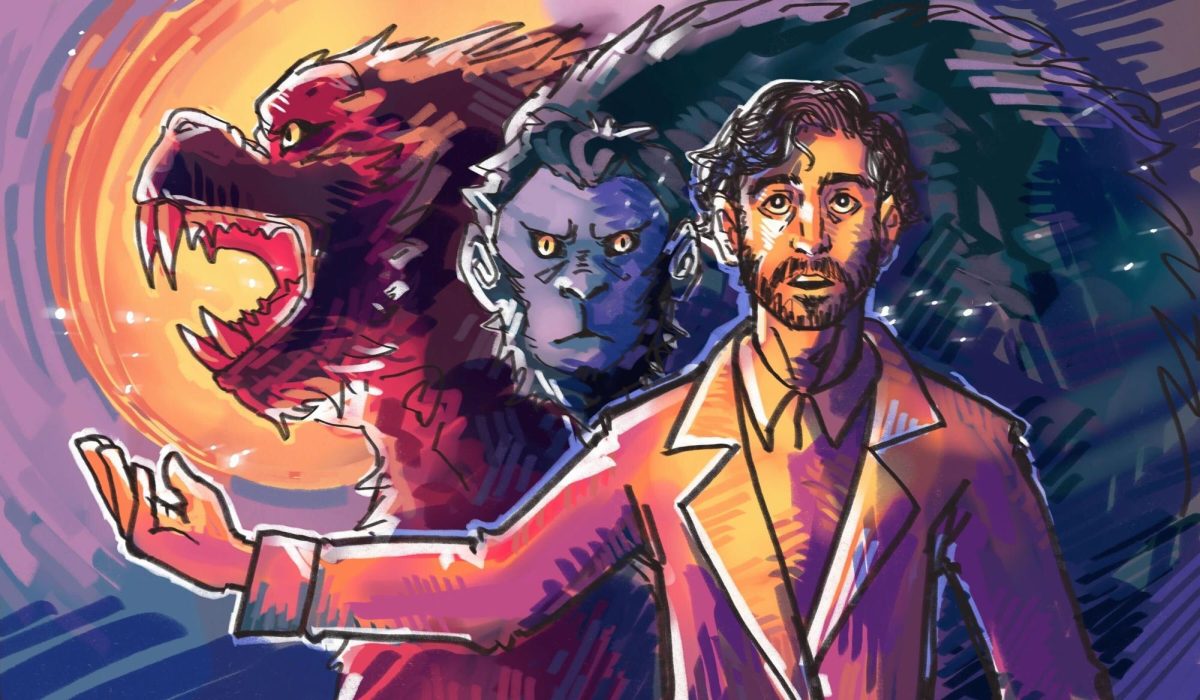Last week, I had the pleasure of finally seeing Dev Patel’s “Monkey Man,” an action-thriller revenge movie based on the Hindu legend of Hanuman. This film was highly anticipated (by me), and while I walked in skeptical, the experience exceeded my expectations. I was surprisingly emotional walking out of the theater; the film sparked some intense feelings that led me to reflect on my own experiences with Indian representation in mainstream media.
When I first saw the promotion for “Monkey Man,” I was excited, yet reluctant. As an avid Dev Patel fan, I had faith in his adaptation of Hanuman, but since childhood, I have also been conditioned to keep my expectations low when it comes to characters that look like me.
So how did such a violent action film elicit such a powerful reaction from me?
“Monkey Man” fuses together Hindu mythology with commentary on India’s socio-political dynamics. Combined with exhilarating action sequences, the film provides a refreshing twist on the senselessness that is typical of the action genre. The blend of cultural influences that produced the film was clear, and the historical and social context struck a chord in me.
The usual senseless violence of the action genre was given sense with the very real context of the Indian caste system, which provides the motivation for the main character, Kid, to challenge the status quo and begin his journey to work his way up the social hierarchy. While still bloody and gory, the film grounds this violence in reality, compelling audiences to root for the underdog in a situation that speaks to a broader political and social framework.
Patel not only stars as Kid, but directed, produced, and co-wrote the screenplay as well. His dedication shines through the screen. The project was almost scrapped by Netflix amidst the COVID-19 pandemic shutdowns, but Jordan Peele picked it up post-production and sent it to the big screen. Patel’s relentless attitude toward this film’s success is incredibly admirable and especially important in getting complex Indian stories to be seen by global audiences.
Indian representation in Hollywood has always been lacking; I have found that the depth and complexity of Indian characters always fell short of their counterparts. Growing up on stereotyped characters like Ravi from “Jessie” and Baljeet from “Phineas & Ferb,” these representations have real impacts on Indian people being typecast as nerdy, ugly, and unpopular among other clichés.
Even though I knew that the American perception of Indian culture was not true to my experience, it still had a palpable influence on me. I still tuned in to these shows that all my friends from school were watching, but I turned to Bollywood movies for the South Asian representation I could not find on Western screens. Bollywood created a space for me to celebrate my culture in all of its beauty and feel pride instead of wallowing in the disappointment that came with watching stereotyped characters on American TV and film.
Watching “Monkey Man” in theaters with my American friends healed that inner child in me who never got to experience Western media that felt like an accurate representation of my identity. Dev Patel’s understanding of what it means to be multicultural is reflected in this film, and my experience in the theater was reminiscent of the same feelings of comfort I got from Bollywood films. Although, what sets Monkey Man apart was its ability to also speak to the American part of my identity, which was the one thing Bollywood films could not achieve.
“I’ve found myself not really being represented on screen for what I am, which is the product of two different worlds. So, a cocktail of identity is truly for me what 2024 should look like, and also 2025 and 2026 and beyond. That’s what representation needs to look like for me, and that’s this film.”
- Dev Patel, BBC
It’s safe to say that “Monkey Man” has quickly become one of my favorite film releases this year, and it makes me excited for the future of Indian representation in the film industry. I hope that future generations will be able to understand how special it is to have so many different parts of their identity celebrated just as this film does.









